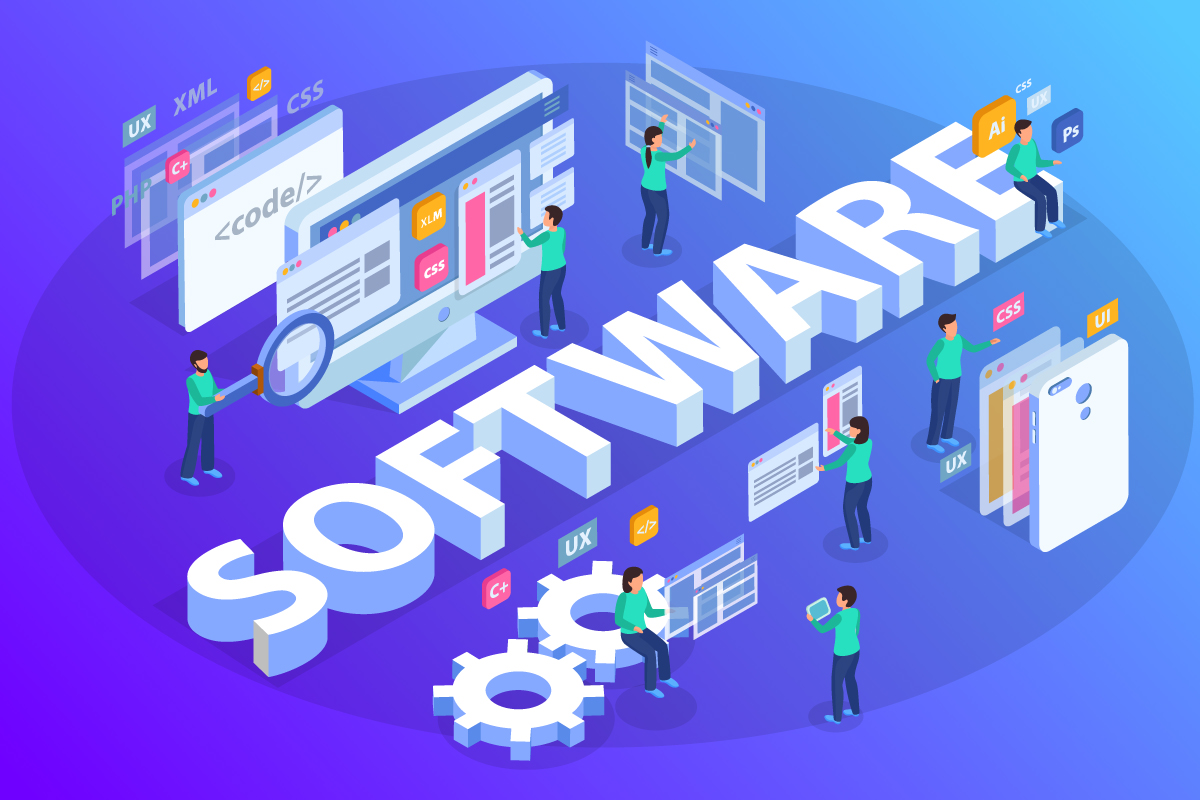Why start a software business?

Starting a new business requires money, patience, and many hours of hard work. Despite having numerous challenges, people still show interest in starting their own.
From the last 2 decades, the software has changed the entire industry, it's a different type of business that has different aspects to take care of. Sometimes, an entrepreneur is motivated to start a business because he feels that he will be successful in it, and he has a desire to be involved in all aspects of an organization's operation.
Software businesses are very different from old school businesses and have entirely separate sets of challenges and rewards. We have discussed the challenges of software businesses in a separate article, here we will talk about why you should start a Software business and its rewards.
Innovation:
The primary goal of businesses developing and selling software targeted towards consumers is making money (see: Business models). The most popular way they make money is selling licenses - renting out time and usage rights on their product for a fee; since the cost of manufacturing and distributing physical media has dropped dramatically, this has become the most popular way to distribute business software.
Return on investment:
Return on investment (ROI) is a commonly used term that businesses and organizations use to measure the success of certain investments. In simplest terms, ROI can be defined as:
The rate of return from an investment is expressed as a percentage of the original spending amount.
In other words, it is a way for a business or organization to determine what gain they will receive after making a certain expenditure towards something. It looks at the amount invested, calculates how much profit was made from this investment, and then divides it by the total cost to get a yearly figure converted into a percentage. This percentage then demonstrates how successful the initial choice was over time when compared with choices.
Passive Income:
Passive income is money earned for work done once. This income can be earned in multiple ways but usually requires investments upfront (i.e., buying stocks or property). It can be earned through ownership (i.e., an equity share) or lending (i.e., getting interest payments on a loan.)
It is important to note here that Passive Income does not mean any work at all - it just means that one does not have to trade hours for dollars after setting up the initial conditions for generating passive income. The initial conditions may include anything from taking out a loan and investing it to get returns from bank interest to starting a company and hiring employees who then do the work for you.
This is in contrast to Active income, which is generated by trading hours for dollars after the initial conditions have been met. This may include everything from working as an employee (trading one's time at a company for money) or taking on freelance projects (also known as "hustling").
Growth:
There are a few ways that software businesses can grow. One way is to increase the number of customers that the business has. This can be done by increasing marketing efforts or by expanding into new markets. Another way to grow a software business is to increase the amount of revenue that each customer generates. This can be done by finding ways to increase the number of services that each customer uses or by increasing the average dollar amount that each customer spends. A third way to grow a software business is to reduce the costs of running the business. This can be done by automating tasks or outsourcing work to other countries.
Interest:
Interest in the Software business has occurred for many reasons - some of them are increased interest in entrepreneurship, increased access to technology, and the rise of mass customization.
Creating Opportunities:
There are many opportunities for starting a software business. One of the best ways to find these opportunities is by looking at the trends in the industry. The software industry is always changing, so businesses are always new opportunities to get involved.
Another way to find opportunities is by looking at the needs of businesses. For example, many businesses need custom software solutions, so there are always opportunities for businesses to create new software products and services. Finally, you can also look at the markets that are growing fastest.
Sales:
The sales in the software business are growing, or at least that's what industry analysts claim. Some estimate so far as to say that the growth of software over the last 15 years has been on average more than 10% annually. More conservative estimates put this figure at somewhere around 3-5%, influenced by an economic recession. There are several reasons for the surge in demand for software, ranging from increased access to computers and the internet among large parts of populations worldwide to ever more complex hardware architectures both with regards to processors and peripherals (e.g., mobile phones).
Slow Part-time start:
A slow part-time start is a key to attaining success in the software business. Before starting the software business, you must ask the following questions yourself.
- How much money do you want from the company?
- It is necessary for whom the company will sell goods or services?
- What exactly goods or services that your company will provide?
- In what industry, as a rule, the company now works the market leader?
- Is it possible to find out about business competitors who already have developed solutions in creating software products similar to yours?
Conclusion:
Starting a software business is not a cakewalk. It requires a lot of effort, sacrifice, patience, and courage to take risks. Besides those challenges, rewards are worth considering those risks. You need to ask yourself if the above-mentioned rewards and reasons are something that gives you goosebumps? Then take a hit to start your own software company.